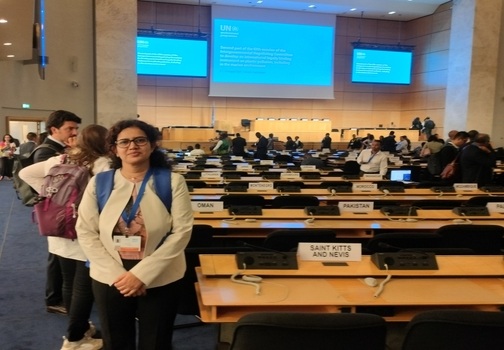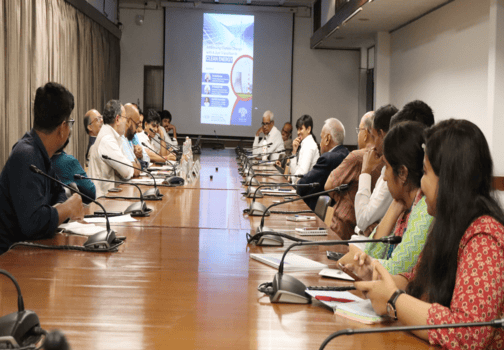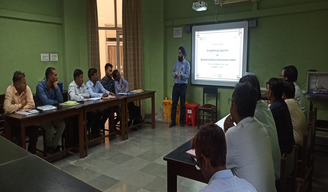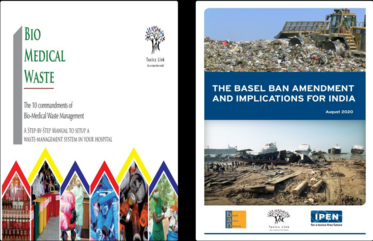Plastic waste emissions
GOVERNMENT OF INDIA
MINISTRY OF ENVIRONMENT, FOREST AND CLIMATE CHANGE
RAJYA SABHA
UNSTARRED QUESTION NO. 2298
TO BE ANSWERED ON 20.03.2025
Plastic waste emissions
2298. SHRI MASTHAN RAO YADAV BEEDHA:
Will the Minister of ENVIRONMENT, FOREST AND CLIMATE CHANGE be pleased to state:
(a) with global plastic waste emissions reaching 52.1 million tonnes in 2020, what portion of this waste is attributed to India and the primary contributors to this pollution;
(b) the steps being taken by Government to reduce plastic waste emissions and promote sustainable waste management practices across country;
(c) whether there are any new policies or legislative measures under consideration to combat plastic pollution and promote recycling, particularly in urban areas where waste management infrastructure is insufficient;
(d) if so, the details thereof;
(e) the manner in which the Ministry plans to ban single-use plastics effectively, ensuring compliance by industries and consumers?
ANSWER
MINISTER OF STATE IN THE MINISTRY OF ENVIRONMENT, FOREST AND CLIMATE CHANGE
(SHRI KIRTI VARDHAN SINGH)
(a): Several reports are published on plastic production and plastic waste generation. These reports vary in their country-wise projections on account of data sources used and assumptions and methodologies used for making projections. Based upon information provided by State Pollution Control Boards (SPCBs) / Pollution Control Committees (PCCs) to Central Pollution Control Board, the plastic waste generated in the country for the year 2022-23 is 4.13 million Tonnes.
(b) to (e): The Plastic Waste Management Rules, 2016, provide the statutory framework for environmentally sound plastic waste management in the country. The Ministry of Environment, Forest and Climate Change notified Plastic Waste Management Amendment Rules, 2021, on 12th August 2021, prohibiting identified single use plastic items, which have low utility and high littering potential, with effect from 1 July 2022. The Ministry also notified the Guidelines on Extended Producer Responsibility (EPR) for Plastic Packaging on 16th February 2022. The implementation, of Extended Producer Responsibility (EPR) on plastic packaging, allows for further development of the waste management sector covering collection, segregation, processing of plastic waste across the country. Around 114 lakh tonnes of plastic packaging waste has been processed as per information available on the Centralized EPR portal on plastic packaging. The implementation of ban on identified single use plastic items, which have high littering potential and low utility, with effect from 1st July, 2022, coupled with implementation of extended producer responsibility on plastic packaging will reduce pollution caused by littered and unmanaged plastic waste.
The following steps have been taken to strengthen implementation of Plastic Waste Management Rules, 2016 and to implement ban on identified Single Use Plastic items:
(i) All thirty-six States/UTs have constituted the Special Task Force under the chairpersonship of the Chief Secretary / Administrator for elimination of identified single use Plastic items and effective plastic waste management. A National Level Taskforce has also been constituted by the Ministry for taking coordinated efforts to eliminate identified single use plastic items and effective implementation of Plastic Waste Management Rules, 2016.
(ii) Directions have been issued under Section 5 of the Environment (Protection) Act, 1986 for setting up of institutional mechanism for enforcement of provisions of Plastic Waste Management Rules, 2016 to all State Pollution Control Boards / Pollution Control Committees. Directions have also been issued to E-commerce companies, leading Single Use Plastic sellers/users, and plastic raw material manufacturers with respect to phasing out of identified
single use plastic items. Separately, custom authorities have been asked to stop the import of banned SUP items.
(iii) For effective monitoring of ban on identified Single Use Plastic items and plastic waste management in the country, the following online platforms are in operation: (a) National Dashboard for monitoring of comprehensive action plan implementation, (b) CPCB Monitoring Module for Compliance on Elimination of Single Use Plastic, and (c) CPCB Grievance Redressal App.
(iv) States and Union Territories have been asked to undertake regular enforcement drives to implement ban on identified single use plastic items and on plastic carry bags having thickness less than one hundred twenty microns covering fruit and vegetable markets, wholesale markets, local markets, flower vendors, units manufacturing plastic carry bags etc. Actions have been taken by concerned authorities on the deviations, which include seizure of banned single use plastic items and levy of penalty. As per details provided by SPCB/PCC and details available at SUP compliance monitoring portal, a total of 8,61,335 inspections have been conducted and 1976 tonnes of banned single use plastic items have been seized and a total of Rs. 19.8 crores of fine has been levied.






